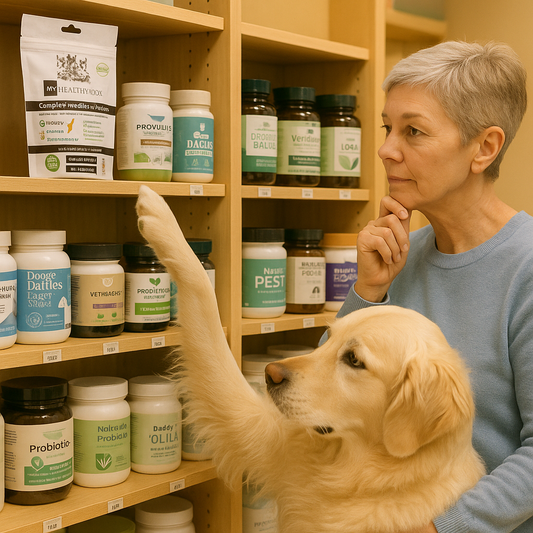The Brussels Griffon, known for its distinctive face and expressive eyes, is a breed full of charm and character. Originating from Brussels, Belgium, this small but spirited dog has captured the hearts of many with its quirky appearance and affectionate demeanor. In this article, we explore the origins, characteristics, and care requirements of the Brussels Griffon, making it easier for potential owners to understand if this breed is the right fit for their family.
Breed Summary
Origin of the Brussels Griffon
The Brussels Griffon's roots trace back to the 19th century in Brussels, Belgium, where they were initially bred to hunt and kill rats in the stables. A mix of the Affenpinscher and the Belgian street dog (Griffon d'Ecurie), the breed was later crossed with the Pug and King Charles Spaniel, which contributed to its distinctive rounded head and undershot jaw. The breed gained popularity in the late 1800s when Queen Marie Henriette of Belgium became a fancier.
Appearance
Brussels Griffons are small dogs, typically weighing between 8 to 10 pounds, and stand about 7 to 10 inches tall at the shoulder. They are known for their human-like facial expressions, thanks to their prominent chin, large, deep-set eyes, and small, erect ears (which can also be half-folded). Their coats come in two varieties: rough and smooth. The rough-coated Griffon has a wiry, dense coat, while the smooth has a short, glossy coat. Common colors include red, black & tan, or belge (a mix of black and reddish-brown).
Temperament
Brussels Griffons are known for their confidence and intelligence. They are full of energy and affection, often forming a strong bond with their primary caregiver. They can be somewhat reserved with strangers but are generally friendly once comfortable. Their alert nature makes them excellent watchdogs, though they can sometimes be overly enthusiastic with their barking.
Health Outlook
The average lifespan of a Brussels Griffon is 12 to 15 years. They are generally healthy, but like many toy breeds, they can be prone to certain health issues such as syringomyelia, patella luxation, and heart problems. Skin allergies and sensitivities can also occur, leading to dry, itchy skin. Regular bathing with a premium dog shampoo can help soothe skin issues and maintain coat health, while regular veterinary check-ups help manage other health concerns.
Nutritional Requirements
Brussels Griffons require a diet formulated for small breeds with high energy levels. Quality dog food that includes a balance of proteins, fats, and carbohydrates is essential to maintaining their health and vitality. Adding a complete healthy multivitamin can help address nutritional gaps, ensuring they receive proper support for their digestive health, skin, and coat.
Exercise Requirement
Despite their small size, Brussels Griffons need regular exercise to stay healthy and happy. Daily walks, play sessions, and mental stimulation through interactive toys or training games are necessary to keep them engaged and prevent boredom, which can lead to destructive behavior.
Pros and Cons of Owning a Brussels Griffon
Pros:
- Loyal and affectionate with family members.
- Small size makes them ideal for apartment living.
- Relatively low grooming needs for the smooth-coated variety.
Cons:
- Can be prone to separation anxiety if left alone frequently.
- Stubbornness can make training a challenge.
- Susceptible to dental issues and requires regular oral hygiene.
Space Requirements
Brussels Griffons do well in apartments and small homes due to their size. However, they still need space to explore and play, and they appreciate having a secure area where they can run and play off-leash.
Suitability for Elderly
Their manageable size and moderate exercise needs make Brussels Griffons suitable companions for the elderly, provided their social needs can be met.
Suitability for Kids
They are best suited to families with older children who understand how to handle small dogs gently. Their small size makes them fragile, so supervision is necessary to prevent accidental injury.
Cost
The cost of a Brussels Griffon can vary widely, typically ranging from $1,500 to $4,000, depending on the breeder and the dog’s pedigree.
What Should the Owner Be Like?
An ideal owner for a Brussels Griffon should be someone who spends a lot of time at home, as the breed thrives on human interaction and can suffer from separation anxiety. They should also be patient and committed to consistent training.
Fun Facts
- The Brussels Griffon gained fame in popular culture as "Verdell" in the film "As Good as It Gets."
- Despite their diminutive size, they were originally bred to hunt and kill rats.
Conclusion
The Brussels Griffon is a delightful companion for someone who can appreciate their strong personality and provide them with the attention and care they need. With proper care, regular exercise, and lots of love, a Brussels Griffon can be a joyful and amusing addition to any home.
Are you familiar with the Brussels Griffon or have this wonderful breed in your family?
Share your stories in the comments!
Share the Article with friends!





